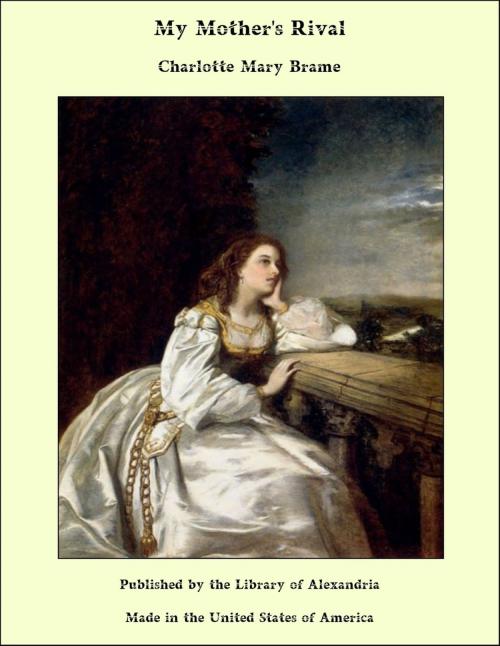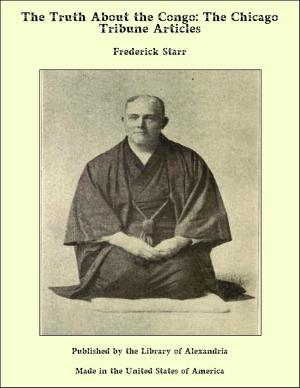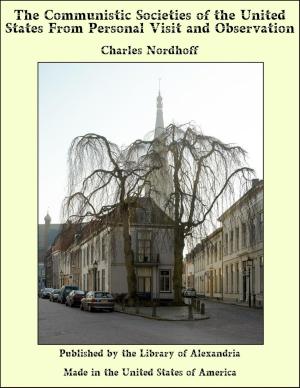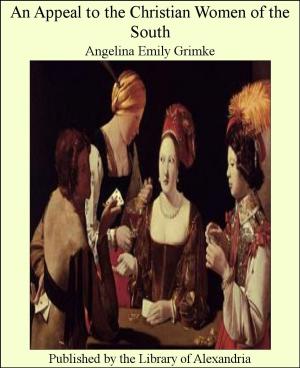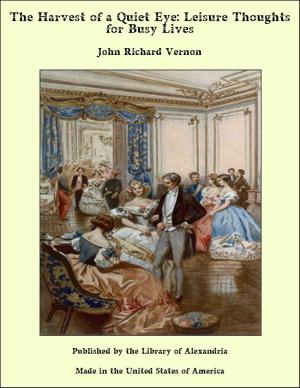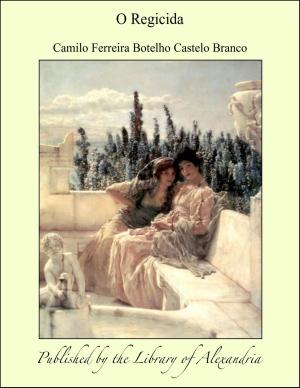| Author: | Charlotte Mary Brame | ISBN: | 9781465604668 |
| Publisher: | Library of Alexandria | Publication: | March 8, 2015 |
| Imprint: | Language: | English |
| Author: | Charlotte Mary Brame |
| ISBN: | 9781465604668 |
| Publisher: | Library of Alexandria |
| Publication: | March 8, 2015 |
| Imprint: | |
| Language: | English |
I have often wondered if the world ever thinks of what becomes of the children of great criminals who expiate their crime on the scaffold. Are they taken away and brought up somewhere in ignorance of who or what they are? Does some kind relative step forward always bring them up under another name? There is great criminal trial, and we hear that the man condemned to death leaves two daughters and a son—what becomes of them can any one living say? Who meets them in after life? Has any young man ever been pointed out to you as the son of Mr. So-and-so, the murderer? Has any young woman been pointed out to you as his daughter? It is not long since all England was interested in the trial of a so-called gentleman for murder. He was found guilty, condemned and executed. At the time of the trial all the papers spoke of his little son—a fair-haired little lad, who was as unconscious of all that happened as a little babe. I have often wondered what became of him. Does he hear his father's name? Do those with whom he lives know him for a murderer's son? If he goes wooing any fair-faced girl, will she be afraid of marrying him lest, in the coming years, she may suffer the same fate his mother did? Does that same son, when he reads of criminals and scaffolds, wince, and shudder, and grow sick at heart? And the daughters, do they grow old and die before their time? Do they hide themselves under false names in silent places, dreading lest the world should know them? Does any man ever woo them? Are they ever happy wives and mothers? I have thought much on this subject, because I, who write this story, seem to the world one of the most commonplace people in it, and yet I have lived, from the time I was a child, in the midst of a tragedy dark as any that ever saddened this fair land. No one knows it, no one guesses it. People talk of troubles, of romances, of sad stories and painful histories before me, but no one ever guessed that I have known perhaps the saddest of all. My heart learned to ache as the first lesson it learned in life. When I think of those unhappy children who go about the world with so dark a secret locked in their hearts, I think of myself, and what I hold locked in my heart. Read for yourself, dear reader, and tell me if you think there have been many fates in this world harder than mine. My Name is Laura Tayne, and my home Tayne Abbey, in the grand old County of Kent. The Taynes were of good family, not very ancient—the baronetcy is quite a modern one, dating from George the First—but Tayne Abbey is one of the grandest old buildings in England. Whenever I looked at it I thought of those beautiful, picturesque, haunted houses that one sees in Christmas annuals, with Christmas lights shining from the great windows. I am sorry to say that I know very little of architecture. I could not describe Tayne Abbey; it was a dark, picturesque, massive building; the tall towers were covered with ivy, the large windows were wreathed with flowers of every hue. In some parts of sweet, sunny Kent the flowers grow as though they were in a huge hothouse; they did so at Tayne Abbey, for the front stood to the west, and there were years when it seemed to be nothing but summer.
I have often wondered if the world ever thinks of what becomes of the children of great criminals who expiate their crime on the scaffold. Are they taken away and brought up somewhere in ignorance of who or what they are? Does some kind relative step forward always bring them up under another name? There is great criminal trial, and we hear that the man condemned to death leaves two daughters and a son—what becomes of them can any one living say? Who meets them in after life? Has any young man ever been pointed out to you as the son of Mr. So-and-so, the murderer? Has any young woman been pointed out to you as his daughter? It is not long since all England was interested in the trial of a so-called gentleman for murder. He was found guilty, condemned and executed. At the time of the trial all the papers spoke of his little son—a fair-haired little lad, who was as unconscious of all that happened as a little babe. I have often wondered what became of him. Does he hear his father's name? Do those with whom he lives know him for a murderer's son? If he goes wooing any fair-faced girl, will she be afraid of marrying him lest, in the coming years, she may suffer the same fate his mother did? Does that same son, when he reads of criminals and scaffolds, wince, and shudder, and grow sick at heart? And the daughters, do they grow old and die before their time? Do they hide themselves under false names in silent places, dreading lest the world should know them? Does any man ever woo them? Are they ever happy wives and mothers? I have thought much on this subject, because I, who write this story, seem to the world one of the most commonplace people in it, and yet I have lived, from the time I was a child, in the midst of a tragedy dark as any that ever saddened this fair land. No one knows it, no one guesses it. People talk of troubles, of romances, of sad stories and painful histories before me, but no one ever guessed that I have known perhaps the saddest of all. My heart learned to ache as the first lesson it learned in life. When I think of those unhappy children who go about the world with so dark a secret locked in their hearts, I think of myself, and what I hold locked in my heart. Read for yourself, dear reader, and tell me if you think there have been many fates in this world harder than mine. My Name is Laura Tayne, and my home Tayne Abbey, in the grand old County of Kent. The Taynes were of good family, not very ancient—the baronetcy is quite a modern one, dating from George the First—but Tayne Abbey is one of the grandest old buildings in England. Whenever I looked at it I thought of those beautiful, picturesque, haunted houses that one sees in Christmas annuals, with Christmas lights shining from the great windows. I am sorry to say that I know very little of architecture. I could not describe Tayne Abbey; it was a dark, picturesque, massive building; the tall towers were covered with ivy, the large windows were wreathed with flowers of every hue. In some parts of sweet, sunny Kent the flowers grow as though they were in a huge hothouse; they did so at Tayne Abbey, for the front stood to the west, and there were years when it seemed to be nothing but summer.
